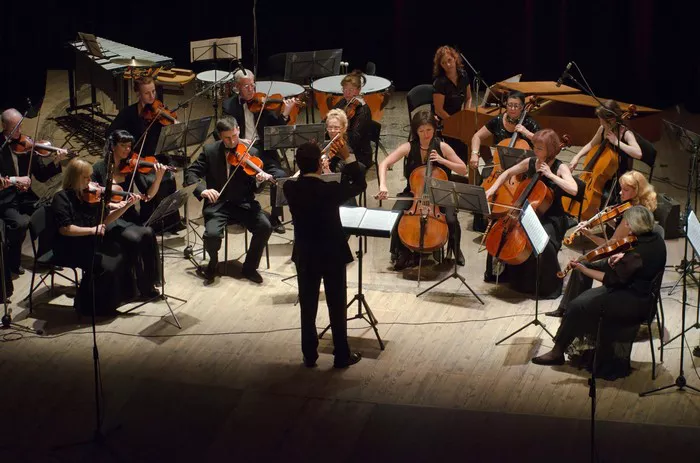In the hustle and bustle of our modern lives, anxiety has become an all-too-familiar companion for many. The relentless pace of daily routines, coupled with the constant barrage of stressors, can leave us feeling overwhelmed and in need of solace. It is in these moments that classical music, with its timeless melodies and harmonious compositions, emerges as a potential remedy. In this article, we will explore the profound impact of classical music on anxiety, delving into its therapeutic qualities and highlighting some of the most renowned classical pieces that have the power to calm the restless mind.
The Healing Power of Classical Music
Classical music, with its rich history and diverse repertoire, has long been celebrated for its capacity to evoke deep emotions and transport listeners to different realms. At the heart of its appeal lies a unique ability to engage with the human psyche, making it a potent tool for managing anxiety. Scientific studies have shown that listening to classical music can have a soothing effect on the nervous system, reducing the production of stress hormones and promoting relaxation.
One of the key ways in which classical music aids in anxiety reduction is through its impact on heart rate and blood pressure. When we listen to classical compositions, our bodies often respond by slowing down these physiological parameters, inducing a state of calm. This is particularly true when the music features a gentle tempo and harmonious melodies.
Mozart’s Magic: A Timeless Elixir for Anxiety
Within the vast realm of classical music, one name shines particularly bright when it comes to alleviating anxiety: Wolfgang Amadeus Mozart. His compositions, marked by their elegance and balance, have been found to have a profound impact on reducing anxiety levels. Mozart’s music is characterized by its intricate structures, yet it possesses an inherent simplicity that resonates with the soul.
One of the most famous pieces by Mozart that has been linked to anxiety reduction is his “Piano Concerto No. 21 in C Major,” commonly referred to as the “Elvira Madigan Concerto.” The second movement of this concerto, known as “Andante,” is a prime example of Mozart’s ability to craft music that seems to suspend time itself. Its gentle piano melodies, accompanied by the soothing embrace of the orchestra, can transport listeners to a world of serenity.
Beethoven’s Symphony of Resilience
While Mozart’s music is often associated with grace and tranquility, Ludwig van Beethoven’s compositions offer a different path to anxiety relief—one rooted in resilience and strength. Beethoven’s life was marked by personal struggles and adversity, yet his music exudes a sense of triumph over adversity that can inspire and uplift even the most anxious of hearts.
One of Beethoven’s most iconic compositions, the “Symphony No. 9 in D Minor,” commonly known as the “Choral Symphony,” embodies the spirit of overcoming obstacles. The final movement, featuring Friedrich Schiller’s poem “Ode to Joy” as its lyrics, celebrates the human spirit’s capacity for unity and joy.
The Elegance of Chopin: A Pianist’s Reverie
Classical music is a vast landscape that encompasses a multitude of emotions and experiences, and Frederic Chopin’s compositions are a testament to this diversity. Chopin, a master of the piano, painted exquisite musical portraits that range from melancholy to exuberance. His works are often characterized by their introspective and intimate nature, making them a perfect companion for those grappling with anxiety.
Chopin’s “Nocturnes” are a prime example of his ability to capture the nuances of human emotion through music. These short, lyrical pieces for solo piano are like musical diary entries, expressing a wide range of feelings. Listening to Chopin’s “Nocturne in E-flat Major, Op. 9, No. 2” can feel like a journey into the recesses of the soul.
Debussy’s Impressionistic Oasis
The classical music is not limited to the works of the great composers of the past. It extends to more contemporary figures like Claude Debussy, whose impressionistic compositions offer a unique sonic palette for anxiety relief. Debussy’s music is often described as dreamlike, with its blurred harmonies and delicate textures creating an atmosphere of ethereal beauty. In the world of classical music, Debussy’s compositions are like a tranquil oasis, inviting us to escape the turbulence of anxiety.
Debussy’s “Clair de Lune,” from his “Suite Bergamasque,” is a quintessential example of his impressionistic style. This piece, with its cascading arpeggios and shimmering harmonies, conjures images of moonlit landscapes and serenity.
Conclusion
Classical music is a vast and inexhaustible resource for anxiety relief, and our exploration has only scratched the surface.As we navigate the challenges of our lives, let classical music be our constant companion, guiding us on a journey of healing and self-discovery.The classical music has been our guiding light, reminding us of the profound impact this genre can have on anxiety and our overall well-being.
In conclusion, classical music is a powerful ally in the battle against anxiety. Its ability to soothe the soul, slow the heart rate, and transport us to different emotional landscapes makes it a valuable tool for managing the pressures of modern life. Whether it’s the timeless elegance of Mozart, the resolute strength of Beethoven, the introspective reverie of Chopin, or the impressionistic oasis of Debussy, classical music offers a diverse range of therapeutic experiences.

